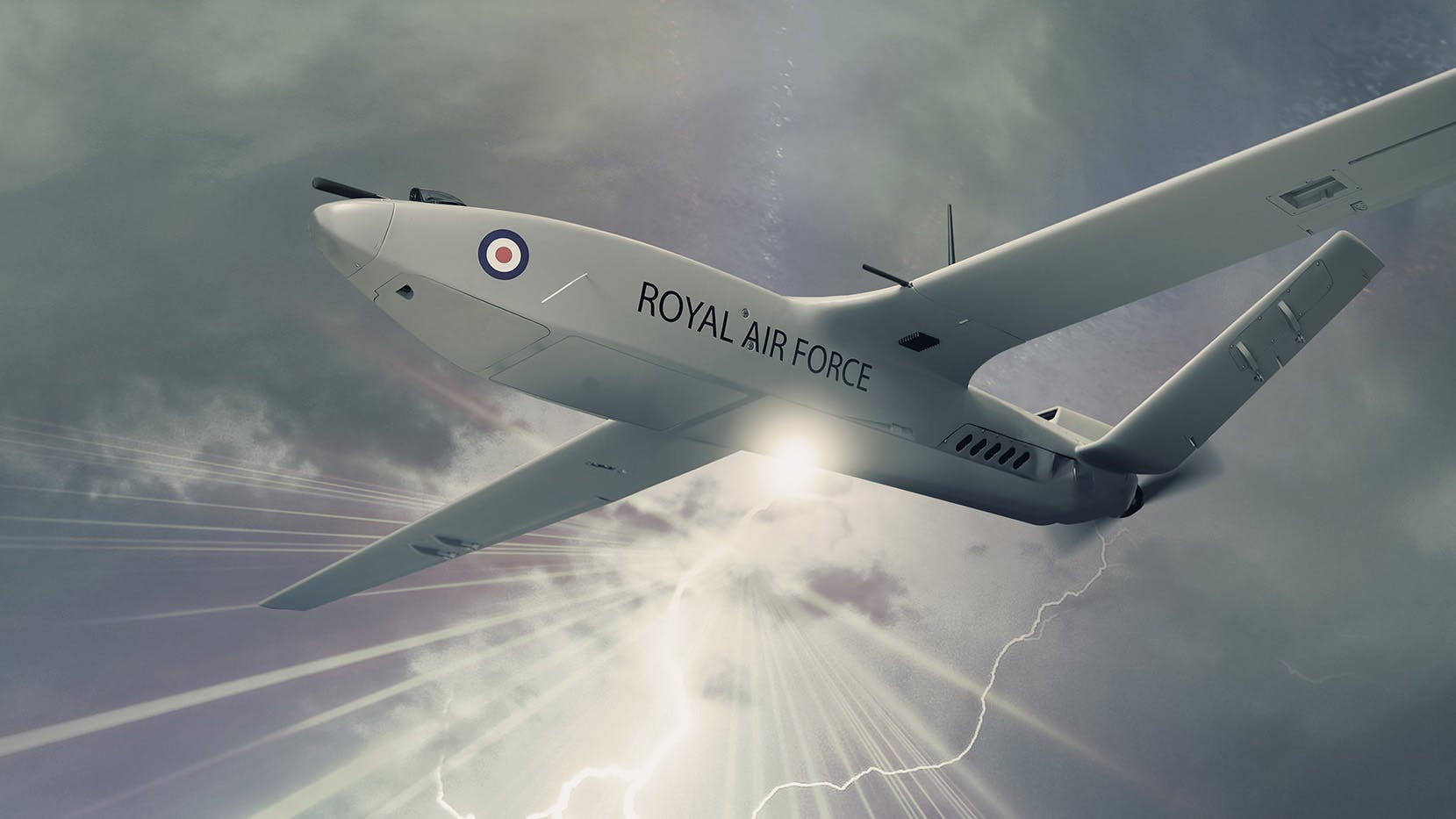Speaking in London on 17 July, Luke Pollard laid out a vision for air force transformation driven by automation, digital targeting, and expanded defence spending. He said the Strategic Defence Review (SDR) had fired the “starting pistol” on UK military reform and warned that old ways of thinking were no longer enough.
“One of the key takeaways from me from the SDR is that we’re not just developing niche autonomous units at the periphery of our military,” he said. “Every single unit across every single service in the UK will be moving to a system of crewed, uncrewed, and autonomous systems.”
Pollard said this shift would touch every aspect of air power – procurement, doctrine, training, and operations, and demanded the same urgency from Allies. “That is a substantial change in how we will fight and how we will deter.”
He pointed to the new StormShroud programme as a model for this approach. The uncrewed electronic warfare drone, announced last week, is designed to disrupt enemy radars and shield manned aircraft. According to Pollard, the system shows how faster procurement, tighter integration, and industry alignment can deliver combat power more rapidly.
Britain’s new StormShroud drones to jam enemy radars
“StormShroud has already created hundreds of skilled jobs around the UK, with the promise of 1,000 more in the future,” he said. “It has gone from factory to front line in record time, signalling how we want to streamline procurement in the future.”
Alongside new capabilities, Pollard stressed the importance of people. He confirmed a renewed focus on military accommodation and continued pay reform, arguing that Britain’s ability to deter would only be as strong as the nation’s commitment to its service personnel.
“Our people are only as strong as the nation that stands behind them,” he said.
The Minister also reiterated the UK’s NATO-first strategy and signalled a growing nuclear role for the RAF, highlighting the recent decision to acquire F-35As for NATO’s Dual Capable Aircraft mission.
“Britain now has a absolutely clear NATO-first defence policy,” he said. “It is only right that Europe steps up to take on more of the heavy lifting for its own defence and protection.”
In closing, Pollard warned that adversaries were adapting fast. “The story of air power has always been one of constant innovation, imagination, and adaptation. That has not changed today. But we must evolve again.”
“By improving our lethality, by increasing it, we increase our deterrence. And with increased deterrence, we make more strategic dilemmas for those who seek to challenge the international order.”
He concluded by urging delegates to keep the momentum going: “Thank you for the pace of change that you are instigating, and keep going.”
